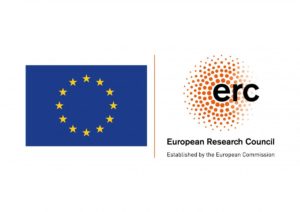 In 2019 Prof. Serbyn has been awarded an ERC starting grant to study the properties of non-ergodic quantum systems. The 5-year project “Non-ergodic quantum matter: universality, dynamics and control” will be funded with approximately 1.5 million Euro. There will be open positions soon available within our group, please stay tuned and check the open positions page.
In 2019 Prof. Serbyn has been awarded an ERC starting grant to study the properties of non-ergodic quantum systems. The 5-year project “Non-ergodic quantum matter: universality, dynamics and control” will be funded with approximately 1.5 million Euro. There will be open positions soon available within our group, please stay tuned and check the open positions page.
Non-ergodic quantum matter: universality, dynamics and control (NEQuM)
In this project we propose to build the theory of non-ergodic quantum matter – isolated quantum systems that avoid thermal equilibrium. To this end, we will study the established non-ergodic phases, search for new phases, and seek to understand their common properties and dynamics. Recently non-ergodic systems that avoid the fate of thermal equilibrium were realized experimentally in quantum simulators. Specific examples include many-body localized phases, glassy and kinetically constrained models, and systems with weak ergodicity breaking. Freedom from the laws of equilibrium statistical mechanics opens up a host of possible unexpected behaviors prohibited in equilibrium. The ability of non-ergodic systems to stay quantum on longer timescales has potential for practical applications. This calls for the development of a general theory of non-ergodic quantum systems. In order to develop such theory, in this project we will seek to address the questions: What are the possible ways to avoid attaining thermal equilibrium? What are the universal properties of such non-ergodic systems? What is the nature of their long time dynamics and their steady state? How can we put their properties to use? The PI will leverage his expertise in studies of many-body localization to lead a coherent research program aimed at (i) describing universal properties of highly-excited eigenstates and their entanglement; (ii) developing new methods to simulate non-ergodic dynamics and reveal its experimental signatures; and (iii) using such quantum phases for many-body state preparation and optimal control. The theory delivered by this project will ultimately provide useful insights into quantum thermalization, thus establishing the first steps towards a general theory of non-equilibrium quantum systems. On the practical side, such theory will guide the experimental search for non-ergodic phases, and open the door to their application in more efficient quantum information storage and processing.
